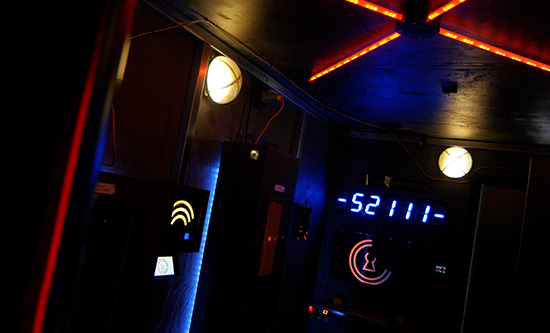
In collaboration with CGI, the university’s external Digital Partner, we have had the CGI Cyber Escape experience on campus – an immersive, travelling Escape room!
For those who took part, we hope that the experience has been both fun and memorable, and we hope that the skills learned in the escape room will help you identify risks and form a strong level of cyber security awareness.
Sadly, Higher Education institutions are often the targets of cyberattacks. The wealth of personal and confidential information held, the high-powered computing resources, high bandwidth networks and valuable research that we maintain are all valuable commodities to cyber criminals, making institutions like ours particularly vulnerable.
As cyber threats continue to evolve, the process of identifying these and taking appropriate steps to resolve and mitigate them is paramount – and it's each of our responsibility.
Top tips to protect your personal and professional information
Cybersecurity awareness is a shared responsibility, and we all play a crucial role in helping to maintain the security of the university in a digital world. We've shared the tips below to help you stay safe online, and protect your personal and professional information:
-
Use strong, unique passwords - Don't use the same password across multiple accounts. Use a password manager to generate and store lengthy, random passphrases with at least 15 characters. Enable multi-factor authentication when available for an added layer of security.
-
Be wary of phishing attempts - Don't click links or attachments in unsolicited emails. Carefully inspect the sender address, grammar, and urgency cues that may reveal phishing red flags. Hover over links to preview their actual destination. Report anything suspicious.
-
Practise good security hygiene - Keep software updated by installing critical system and app security patches in a timely manner. Don't ignore or delay updates. Set devices to automatic updates when possible. Don't install unauthorised programs.
-
Secure your Wi-Fi network - Use WPA2 or WPA3 encryption on your wireless router. Don't use public Wi-Fi for sensitive browsing. Manually connect only to known secure networks and use a VPN.
-
Back up important data - Follow the 3-2-1 rule: 3 copies, 2 local on different media, 1 offsite. Routinely back up to encrypted external drives and cloud storage. Test restores periodically.
-
Be careful what you share online - Think before posting personal information publicly. Adjust social media privacy settings. Avoid oversharing information that could compromise security answers.
-
Report security incidents - If you suspect a breach, malware infection, or fall victim to an attack, report it immediately to DTS Service Desk so action can be taken to prevent impact to others.
We also have a wealth of information available on our IT Security pages.